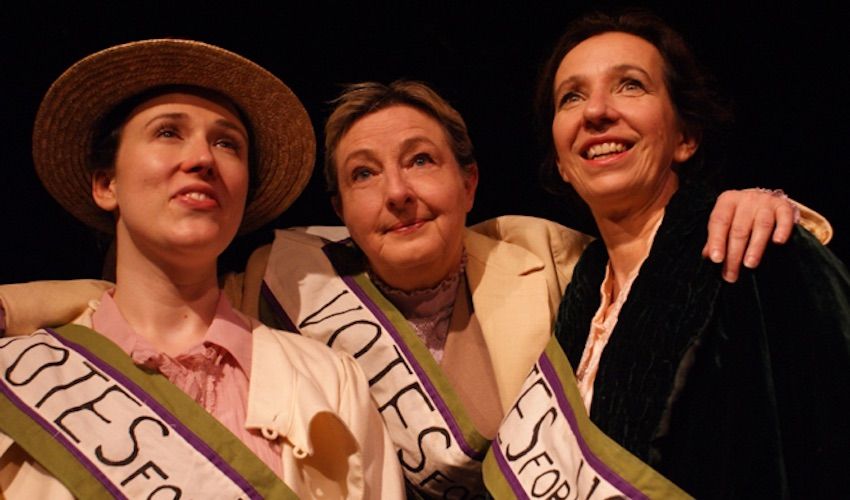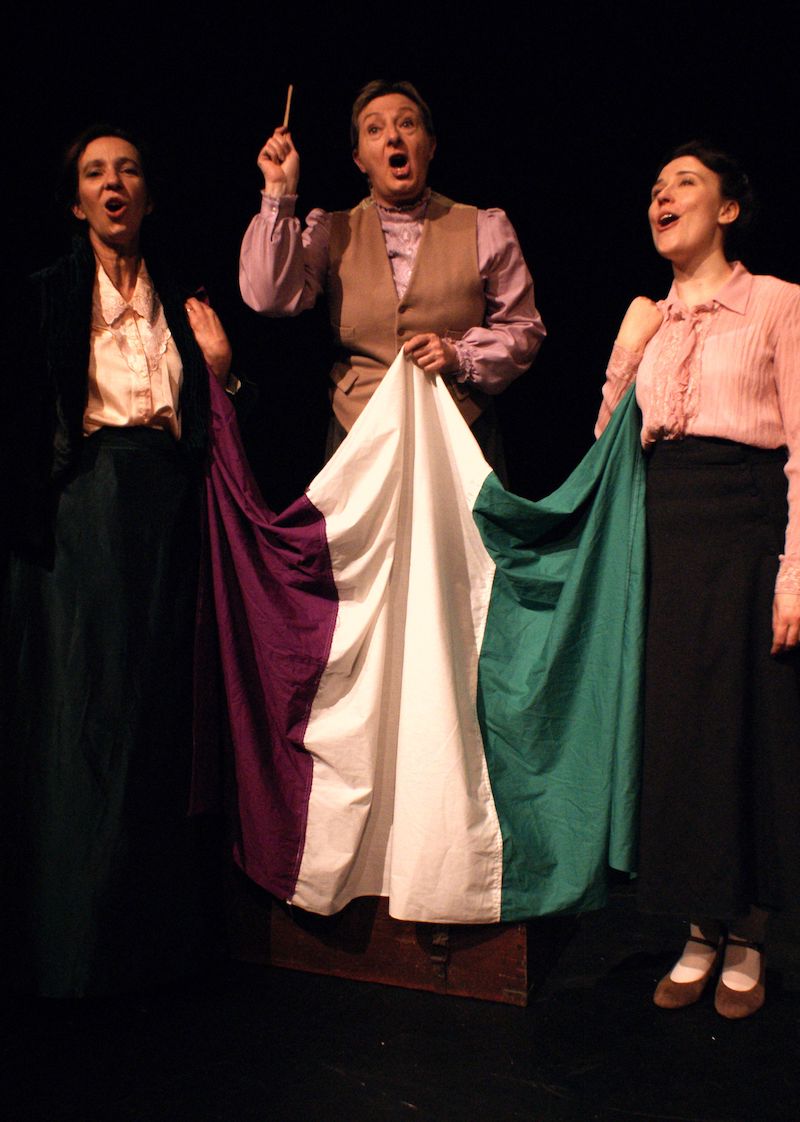

As Jersey celebrates the centenary of women being able to vote, Norfolk-based Theatre company, Broad Horizons has brought ‘Rebellious sisterhood - votes for women’ to the Opera House this weekend.
Written by Jersey resident, Karen Forbes, the play explores the lives of 3 suffragettes: Emmeline Pankhurst, composer Ethel Smyth and Grace Roe.
Actor and Broad Horizons Director Judi Daykin explains how it came to be...
We are always supporting and recovering women’s history. It seems to have fallen out of favour, they have stopped teaching it at school, but we want to keep the knowledge of what women went through for different reasons alive.

Pictured - from left: Bev Bishop, Judi Daykin and Kiara Hawker.
With the Suffragettes, there is a tendency to airbrush the real cost they paid. We love women’s history, but the play isn’t a biography or a history lecture, it’s about bringing the women to life so that men and women alike can hear how hard it must have been, the personal things they went through and the cost they paid. That cost was sometimes physical, they were force fed, it was appalling, but the personal side has gotten lost in the publicised side of it.
We picked three people who represented different views. We have Emmeline Pankhurst, the leader, who fell out with her own family. She was bankrupted and lost her home. She went on a hunger strike and became very ill.
Then there is composer Ethel Smyth, who wrote the Suffragettes’ anthem. For her, the movement was a bit ‘jolly hockey sticks’ or a kind of a game for her at first; but then it got very violent and she didn’t approve of that, she thought there should be better ways.
And then there is Grace Roe who disguised herself, and got into the lower grades of the prison. She was a complete activist.
A lot of the time people are shocked what people went through. It’s a dark subject, but we tried to have a few comic moments. We didn’t want it to be upsetting to see, but it is very poignant. You can’t educate if you don’t entertain. Some people say, "I am going to vote”, as they realise what people went through to get that privilege, which is a great compliment. We encourage people to come and see it, especially teenagers.
This article first appeared in Connect magazine, which you can read by clicking here.
Comments
Comments on this story express the views of the commentator only, not Bailiwick Publishing. We are unable to guarantee the accuracy of any of those comments.